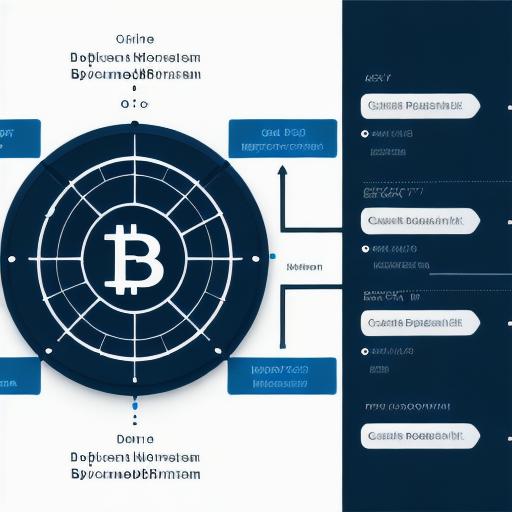Exploring Web3: Is DNS Still Relevant in Decentralized Internet?

Title: DNS Still Relevant in Decentralized Internet? Exploring Web3 and Its Implications for Domain Name System
Introduction:
The decentralized internet, also known as Web3, is a revolutionary concept that promises to give users more control over their online presence. As the world becomes increasingly digital, the need for decentralized technologies has never been greater. One of the key components of any decentralized system is the domain name system (DNS). However, with the rise of Web3, some are questioning whether DNS still holds relevance in a world where users have more control over their data. In this article, we will explore the role of DNS in the decentralized internet and examine its implications for Web3 development.

Understanding DNS:
Before we dive into the implications of DNS in the decentralized internet, it’s important to understand what DNS is and how it works. The domain name system (DNS) is a hierarchical database that translates human-readable domain names (e.g. google.com) into machine-readable IP addresses (e.g. 172.217.159.65). Without DNS, we would have to remember the IP addresses of every website we visit, which would be extremely impractical and time-consuming.
Implications of DNS in Web3:
In a decentralized internet powered by blockchain technology, users have more control over their data. This means that they can choose to host their own websites, store their files on decentralized servers, and even register their own domain names. However, this also means that the traditional centralized DNS infrastructure could become obsolete.
One of the main challenges facing Web3 developers is finding a way to replace the traditional centralized DNS infrastructure with a decentralized alternative. While there are many proposals for decentralized DNS solutions, such as IPFS and Swarm, these systems still rely on centralized authority to resolve domain names. This is a major problem, as it means that users could potentially lose control of their domain names if they fall out of favor with the centralized authorities in charge of the DNS infrastructure.
Another challenge facing Web3 developers is finding a way to ensure the security and privacy of decentralized DNS systems. Without a centralized authority to oversee and secure these systems, users could potentially be vulnerable to attacks from malicious actors. This is a major concern for anyone who values their online privacy and security.
Case Studies:
There are already some examples of successful decentralized DNS solutions that have been implemented in Web3 applications. One example is the Namecoin protocol, which was developed in 2011 as an alternative to traditional DNS systems. Namecoin uses a consensus mechanism based on Proof of Work (PoW) to resolve domain names, and it has already been used by several major websites, including the Pirate Bay.
Another example is the Ethereum Name Service (ENS), which was developed in 2016 specifically for use on the Ethereum blockchain. ENS allows users to register their own domain names that are stored on the Ethereum blockchain, and it has already been used by several high-profile Web3 projects, including MakerDAO and Dfinity.
FAQs:
Q: What is the role of DNS in the decentralized internet?
A: The domain name system (DNS) translates human-readable domain names into machine-readable IP addresses, making it easier for users to navigate the web. However, with the rise of Web3, some are questioning whether DNS still holds relevance in a world where users have more control over their data.
Q: What are the implications of DNS in Web3 development?
A: While there are many proposals for decentralized DNS solutions, such as IPFS and Swarm, these systems still rely on centralized authority to resolve domain names. This means that users could potentially lose control of their domain names if they fall out of favor with the centralized authorities in charge of the DNS infrastructure. Additionally, without a centralized authority to oversee and secure decentralized DNS systems, users could potentially be vulnerable to attacks from malicious actors.
Q: What are some examples of successful decentralized








